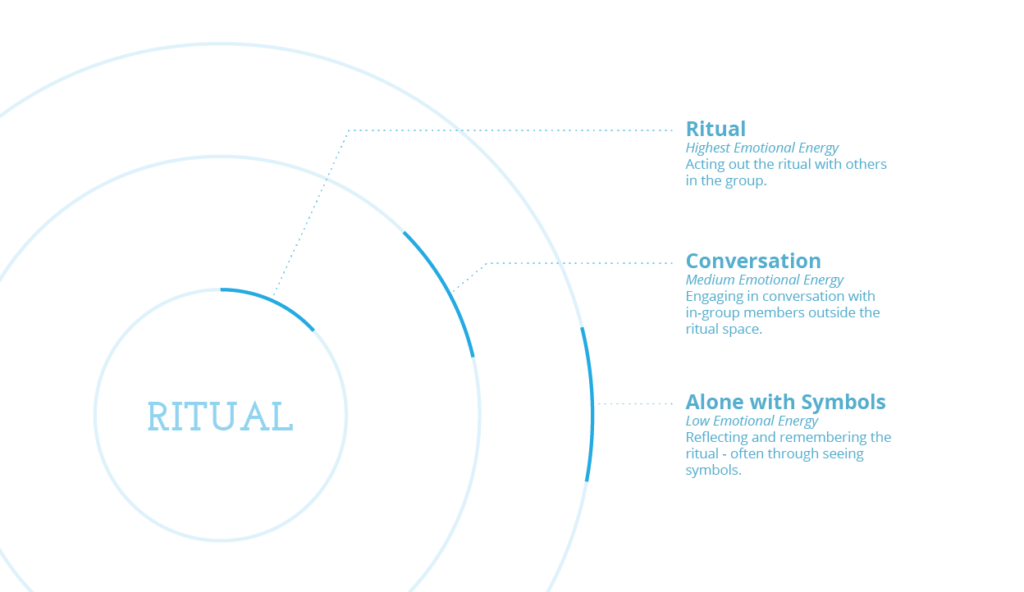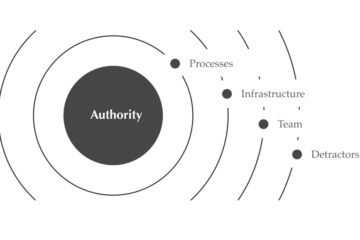At a dinner party some nights ago, I found myself in an interesting quagmire that left me scratching my head for days: I told my friends that I didn’t vote in last the US election because I didn’t see much of a point to it launching a spirited debate, which elicited intense feelings of befuddlement, disgust and dismay from those around me.
I laid out an argument to defend myself – one that was (at least in my mind) completely thoughtful, rational: I’m a citizen of the United States and the honest truth, based on the way our voting system works,((The United States uses a system called the “Electoral College,” wherein each of the 50 states (similar to provinces) has a set number of votes. I belong to the state of Texas, which has 38 votes out of the total country’s 538. As an individual in the state of Texas, my vote doesn’t technically count as anything – its primary function is simply to signal to Texas’ 38 electors how they might want to spend their real votes. In almost all cases (though there was some variation in 2016) electors cast their votes based on what a simple majority of the state wants – creating a “winner-take-all” scenario. A few states in the union, called “swing states” are pretty evenly divided between the center-left and the center-right parties, so a person in these states does have a vote that “matters” in the traditional sense. The state of Texas, however, reliably supports the US’s center-right party, the Republicans, by a healthy margin. Whether or not I show up and cast a vote, therefore, has no an effect on the outcome of the election itself. )) is that my casting a ballot will have no effect on the outcome of the election. In the strictest sense, my vote doesn’t “matter,” but the effort of voting is very real. Why would I go through the effort of doing something that has no effect?
My argument was promptly ignored as a moral case mounted against me. The conversation ended without resolution, but at the end of the night, I couldn’t get it out of my head: what happened here?
Note: This is intended to be a Living Essay – a post that I revisit from time to time to update, add sources and arguments too, and inevitably refine my thoughts from time to time.
When rational argument falls on its face…
In a rational sense, my argument is simple: I do not believe that I, as an individual, should spend my time expending efforts on something that renders no effect on an outcome. Despite this simplicity, I commonly hear responses to this reasoning such as:
- As a member of society, it is your duty to vote.
- If you don’t vote, how can things change?
- Maybe there are others like you out there that agree with you. If you all would just vote, things would be different!
- If you don’t vote, how can you complain about the outcome?
I often end up a bit flustered and befuddled at this point of the conversation because most of these are statements of virtue or wishful thinking. These arguments could be taken in turn but none of them address the problem I’ve presented.
The conversation often circles back around with each side repeating the same bullet points over and over again until we eventually give up and move on to another topic. It isn’t that either side is acting overtly stubborn or self-righteous – we just seem to be arguing past each other. With such a simple topic, though how could this be? Perhaps I’d been thinking about this topic the wrong way.
Using the right lens for the situation
Such conduct is “irrational,” that is, from the point of view of the rational pursuit of a given end. Even when such emotions are found in a degree of intensity of which the observer himself is completely incapable, he can still have a significant degree of emotional understanding of their meaning and can interpret intellectually their influence on the course of action and the selection of means. – Max Weber, 1897
Classical economists have historically fallen into the comforts of Rational Choice Theory((Many suppose that the love of Rational Choice theory comes from how easy it is to model – or how well it supports neo-classical economics which, in turn, is easy to model. Less zealous proponents of rational choice would argue that “rationality” should not be taken so narrowly – that it takes into account all of human action, not simply the more narrow forms of price optimization. Like most ideas and movements, it gets hard to make generalizations about what most people actually believe – especially since many modern proponents of the more simplified Rational Choice Theory cite older writers such as Hayek or Smith who, in fact, had much more rich and nuanced conceptions of humans.)) to simplify their models of macro situations. The theory asserts that the economy is made up of rational actors that make decisions based on their own best interests.
In our day, however, this theory serves as the perennial punching-bag for anyone with a passing knowledge of psychology or the social sciences because it tends to focus on specific, short-term details of a situation rather than complex, longer-term social relationships. The simple, undeniable fact is that people don’t act rationally most of the time((One day, we’ll all look back at the period of around 2008 when “behavioral economists” finally “discovered” that humans don’t typically use a complex rational calculus for the decisions they make day to day. It is true that Herbert Simon pointed this out sometime in the 1960’s, but I guess everyone just forgot until a string of authors like Kahneman, Ariely, Duhigg, and a few others started publishing behavioral economics best sellers. Richard Thaler even eventually won a nobel prize in economics for his work with Cass Sunstein pointing out simple things like how human behavior tends to be less by rational choice than other factors and that by “nudging” the social, material, and psychological aspects of a situation we can affect human behavior. Poor Simon, I guess “The Science of the Artificial” just wasn’t as catchy or best-sell-able as “Nudge.”)).
If we limit ourselves to this simplistic understanding, we will constantly frustrate ourselves witnessing not only people acting “irrationally,” but also reward others for “irrational” behavior. In particular, a rigid search for individual rationality blinds us from other forces that drive human behavior – particularly emotionally charged topics held by groups.
When I thought about whether or not to show up on voting day, I was attempting to make a rational decision. Is it possible that, like the stubborn economist, I’ve fallen into the trap of applying rational argument to an emotive, human situation? The conversation about voting, however, may not have anything to do with rationality at all!
…it wasn’t the outcome they were primarily concerned about, it was my participation in the ritual.
Sociologists have different systems for understanding human behavior than economists. Sociology shifts the focus from the choices of individuals in the moment to the interactions between them in the long term.
<image: psychology (human with brain) Sociology (humans with an arrow between them, the arrow is green). Behavioral Economists – a human pointing to choice A or choice B. Caption: This is a VAST oversimplification, forgive me)>
Sociologists that study everyday life see inter-human interaction as driven less by choices rationalized in the moment than rituals that enable relationship-building over longer time horizons. Much of how we interact is based on establishing trust relationships through expressions of shared values and goals. Gossip, reputation, shared symbols, similar experiences, common vernacular, and interactive activities stress an interconnectedness that helps groups of people determine who can be trusted and who may be a free-rider((Gossip and the “free-rider problem” are common themes in Jonathan Haight’s broader analysis of morals. Read more about this in his book The Righteous Mind)). In particular, an action that expresses shared values is a good signal to the group that you can be trusted and welcomed in.
Had I listened more closely at the time of my dinner conversation, I may have understood the underlying discomfort my interlocutors felt with the situation: it wasn’t the outcome of the vote they were primarily concerned about, it was my lack of participation in the ritual.
Rituals build unity, identity, and trust.
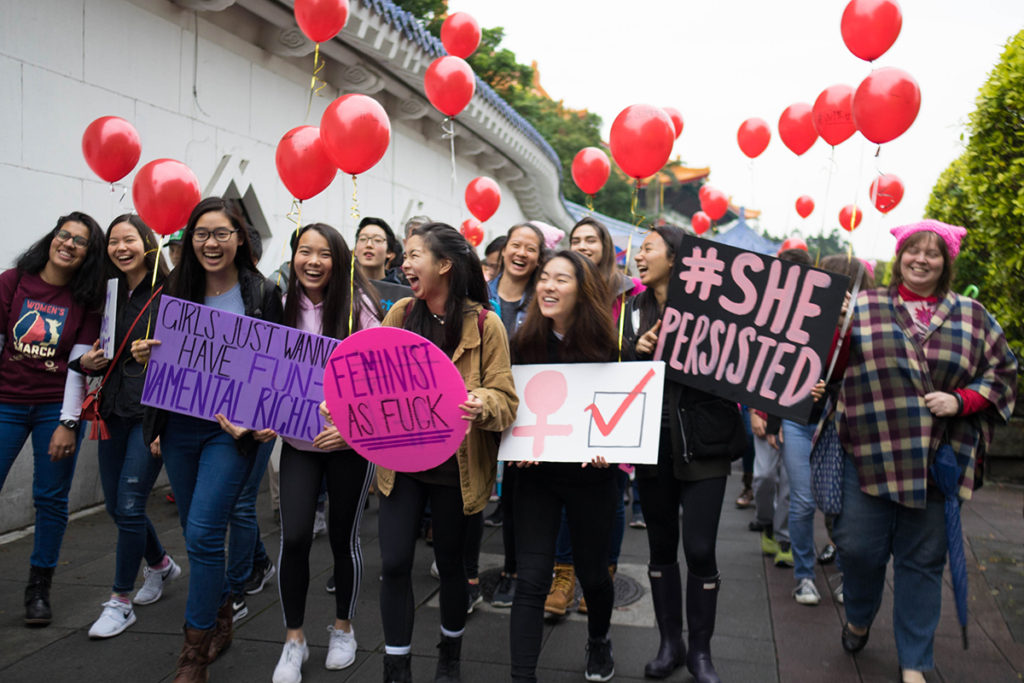
Rituals that bring people together to focus their attention and celebrate common identity are a powerful source of emotional energy for participants. (Photo by Kyle Becker, Taipei, Taiwan, 2017)
Take a moment to think about a group of people you belong to – it may have been a religious ceremony, a really effective work team, or a sports team you play on (or even just cheer for). Try to remember the last time you joined the group and participated in an activity in which you felt a strong sense of belonging; are there certain patterns of interaction with this group that are often repeated?
Sociologist Randall Collins discusses the main tenets of ritual in his book Interaction Ritual Chains. Rituals are events that bring people together and – through the process of acting things out, wearing similar clothes, chanting similar words, sometimes moving in unison – expressing shared values. Collins points out that the group generally chooses a single object or person center the ritual around that represents these shared values. For example, catholics gather around an alter during a mass, political rallies tend to gather around a main speaker, football hooligans tend to gather around a sports team, etc…
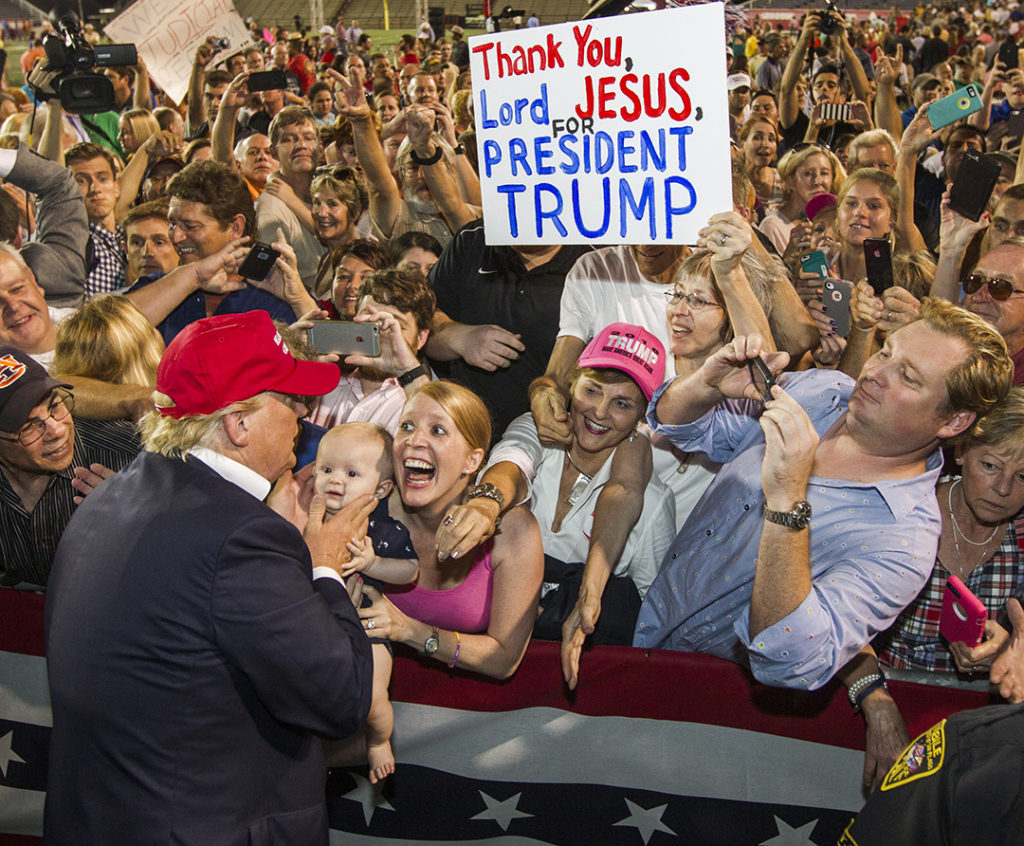
It is easier to build emotional energy in groups. An individual that can maneuver to the center of these groups can often become symbol of group identity and solidarity his or herself. (Photo by Mark Wallheiser/Getty Images)
For Collins, the power of a ritual comes from the amount of “emotional energy” that it arouses in each group member. In effective rituals, this energy builds as it passed between bodies in the room generate more and more excitement. This creates a powerful sense of unity, identity and trust between members of the group – the very things that enable a group that group to become a community that survives and thrives. Rituals that evoke a strong sense of emotional energy are often replicated by the group regularly, creating long-chains of interactions that reinforce these values creating an even deeper sense of meaning for the group over time, but it is still difficult for group members to feel this energy and sense of belonging all the time.This is why symbols are so important.
Symbols can carry emotional energy outside of the ritual.
Emotional energy is fleeting. A powerful ritual may give you an afterglow for a few hours, but in the absence of the group and the shared sense of focus, the energy – and the feeling of belonging and purpose – fades. To maintain this feeling, we often choose symbols – be they material objects or expressed ideas – into the mundane world to remind us of our sense of in-group belonging.
Collins describes symbols as becoming “charged” with emotional energy through rituals we share with others. These symbols may be traditional – like a rosary that has been blessed by a priest, but they may also be every-day objects granted special significance – a baseball caught at a baseball game, a refrigerator magnet from your yoga class, or even an “inside joke” among the friends that were at the party last Friday night.
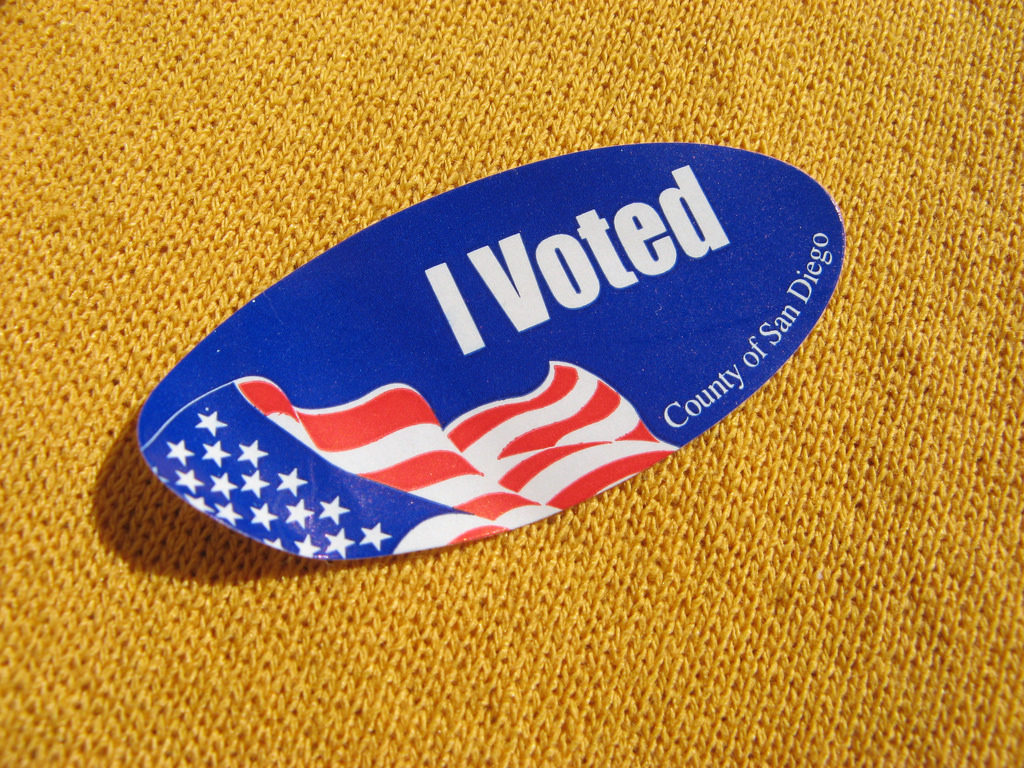
In the United States, people are given these stickers after they vote. Its just a dumb sticker, but people are super proud of wearing them and often post pictures of them on social media. Others who have also earned their stickers love to comment, displaying a shared respect for the common symbol and the ritual it represents. (Photo: Justin Taylor)
In all of these cases, the power of the symbol comes from reminding the individual of a story that reinforces her identity as a part of the group. The emotion that she felt alerted her brain that something important was happening, and the symbol carries the narrative that reinforces that feeling back into the mundane world. When we look at these symbols – the truly powerful ones – we get to relive a small part of the emotion we felt in the original ritual.
Collins discusses three concentric phases of emotional energy. The strongest sense we get is when we partake in the ritual itself. Weaker, but still potent, is the emotional energy we feel when we discuss the common values, symbols, and the ritual itself with other group members. The weakest feeling comes when we are alone with nothing but our symbols to evoke the emotion within us.
The act of voting would be the first circle – the ritual itself. An “I Voted” sticker – a material symbol that reminds the individual of ritual participation – would fit into the third circle. The conversation with my friends about voting fits in between: over glasses of wine in an apartment an ocean away from the US, we were reliving the tenets of a ritual as a group through conversation and mutual display of values (or, in my case, a desecration of those values).
Desecration
In some places, you’re better off killing a person than desecrating a symbol. Attacking a person is bad for that person, but attacking a symbol is an assault on the values and the binding agent of the group as a whole ((Bear in mind that in a place like the United States, and many other modern systems, a “criminal” offense (as opposed to a “civil” offense) such as a violent crime is considered to be not only a crime against the individual, but against the society as a whole. Many argue that this was originally simply because it gave kings ways to raise revenue, but others might argue that the consistently exercising the rule of law is necessary to their societies. Rule of Law is often a symbol of modern nation states, and the maintenance of this takes on a symbolic role. The desecration of this principle by an individual is an expression of disrespect for the values that hold the society together.)). Calling into question the validity of a symbol undermines the legitimacy of the group identity.

Vaginas are a powerful symbol for feminist rallies as they both signal in-group membership (a gender) and because the thought of violating a vagina strikes a visceral emotional nerve. To quote Krista Suh, originator of the Pussy Hat Project, “We hope these hats will become a symbol long after the march.” (Photo by Kyle Becker, 2017)
Symbols give group members a material representation of their own identity, and great lengths are often sought to maintain the sanctity of these material objects as if they were the ideals themselves. A military member may give his life to protect a piece of fabric or a member of a religious community chooses martyrdom over symbolic expression such as renunciation.
For most groups, it is bad for an outsider to desecrate a symbol is bad, but the worst punishment is always for the apostate – the one who defects.((For example, many societies have harsher punishments in war time for deserters and traitors than they do for enemy combatants. Some expressions of religions preach that apostates should be put to death while infidels are treated with a bit less harshness.)) I believe this concept is closely related to to the idea of a magic circle.
Many things in our lives – like a government, fiat currency, a football game, or any other social construct – aren’t real in any material sense. Each is acted out through coordinated implicit agreements of people co-inhabiting a time and place. They are magic circles – places where people alter their behaviour based on these agreements to achieve goals that only make sense in the context of the space. It can only continue to exist as long as each individual member of the group can see the other members respecting the agreement.
Herein lies the issue – a magic circle only exists because people believe it exists. The biggest enemy of the magic circle isn’t external aggressors – it is internal doubt and violation of the norms.
With this in mind, what message did I send when I told my companions that I didn’t vote? What if voting isn’t a mechanical mechanism meant to achieve an end – what if its true value is in its display – a signal to others that I’m upholding the values of the magic circle? I am a trustworthy member of the group?

It feels good to express shared values by standing up for something you believe in with a group of people. In southern US states like Texas, guns are an expression of freedom and independence. Threats to restrict guns, therefore, is felt more as a symbolic attack on one’s values than a simple, pragmatic policy shift. Read more in my article Carry.
Moving Forward
In 2016, Americans elected a former reality TV show star that ran on a host of iconoclastic ideas and has since proven to be a master of social-media controversy. Though at the time of this writing in 2018, it is difficult to say whether his tenure will be of any long-term consequence, it is notable that many in the country and in the world feel that the system as a whole is unraveling.
I’m from the United States, so the election I sat out was for positions in the American government. Interestingly, my interlocutors – from Mexico and the UK – weren’t even a part of the same national “group” as me! It was pretty silly of them to care. Or so I reasoned at the time (another argument that fell completely flat). It was baffling and abhorrent to them that I could understand perfectly well the meaning behind this ritual yet fail to uphold it.
To be honest, none of us are big fans of our own governments, but it wasn’t my acceptance and expression of my national group that my friends were interested in. Their values are much higher – they believe in democracy, human rights, and a number of other values that have evolved through western society. They believe that these things are only possible through participation in government so their biggest frustration when they see things going “the wrong way” isn’t their opponents, but those that simply don’t participate.
In a world increasingly concerned with identity, neutrality is increasingly seen as treason. To me, this sounds to me like a group of people afraid that if their symbols erode, the seams that hold us this common illusion together will be pulled apart and the unified defence of their values will disappear as well. Maybe they will, who am I to say?
As for me – I think I need a new strategy for building rapport at dinner parties. Since I tend to avoid labeling myself, and I’m not going to start voting anytime soon, I may need to find other ways to evoke a sense of shared values and in-group cohesion.

